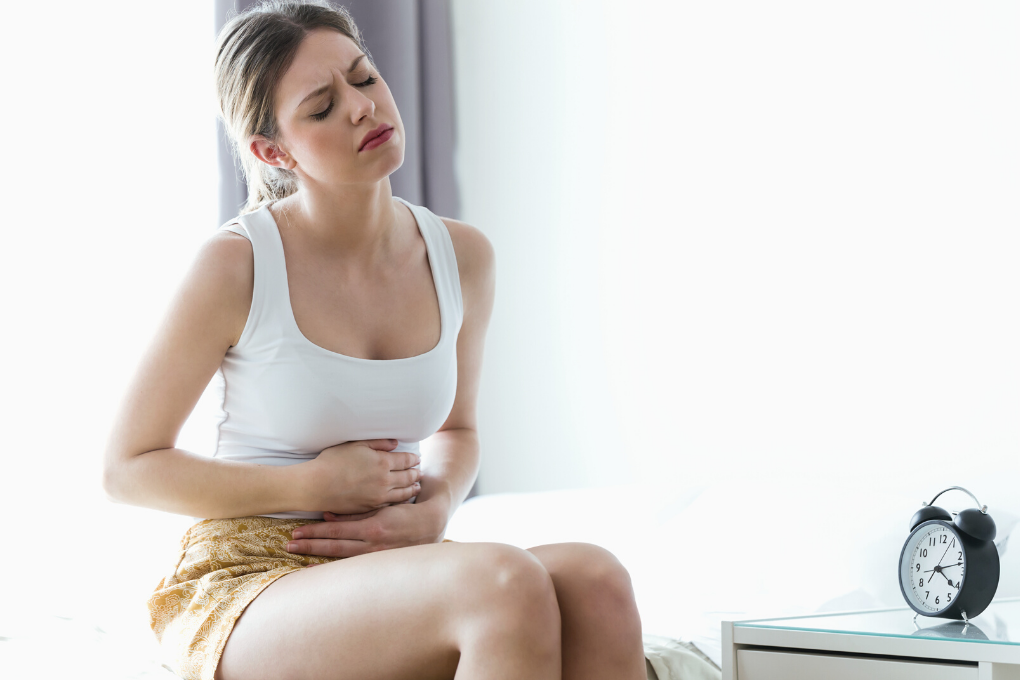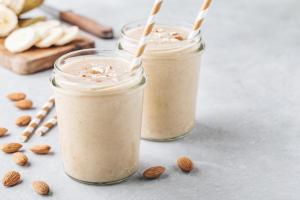Gut Health, Nutrition
7 Ways to Reduce Bloating
Abdominal bloating is one of the most common complaints we hear in store. Most people are searching for a quick fix when symptoms arise, but what if you could stop them from occurring all together? This blog will explain why bloating occurs and how to prevent it from happening, as well as some tips to help manage it if it does occur.
It’s likely that everyone has experienced bloating, as a small amount is completely normal, but I’m sure we can all agree it isn’t much fun. For some it can be a daily occurrence and can cause a lot of discomfort and pain.
Bloating can be a result of many things including underlying coeliac disease, food intolerances, irritable bowel syndrome (IBS), constipation, gas producing foods and well as stress and imbalanced hormones.
Bloating occurs when foods ferment and produce little pockets of trapped gas in the intestines, or from swallowing too much air when eating. Abdominal distension (increase in abdominal girth) often occurs because of bloating, and the stomach often feels very full and hard when it is pushed.
Below are 7 evidence-based tips that can be implemented to manage bloating and other gastrointestinal issues, that don’t require you to spend big.

1. Eat mindfully
It may sound insignificant, but evidence shows that eating your food without distractions such as scrolling on your phone or watching tv (don’t worry we are all guilty of it) can reduce the incidence of bloating. Along with this we need to make sure we are properly chewing our food.
Chemical and physical digestion begins in the mouth so if we aren’t doing this well, we are just creating extra work further down the digestive tract. Making sure you are chewing around 20 times per mouthful is ideal.

2. Herbal teas
Sipping on a chamomile or peppermint tea can successfully reduce flatulence and bloating symptoms in some people. Peppermint has good evidence backing its anti-inflammatory and antispasmodic properties.
It has shown to be effective in reducing symptoms for patients with IBS by relaxing the smooth muscles in the stomach to reduce cramping. Some studies suggest that peppermint oil taken as a capsule is more effective, but this depends on the severity of symptoms.

3. Regular exercise
Exercising regularly can help keep things moving. Constipation is a big cause of bloating as the stool sits in the bowel for longer periods giving the microbes in the bowel more time to ferment. A very recent study has shown that regularly doing Hatha yoga sessions is just as effective for IBS sufferers as the low FODMAP diet.

4. Keeping a food diary
Keeping a food journal can help to uncover what foods may be triggering your symptoms. Foods that are gas promoting, such as legumes, beans, broccoli, cabbage, and asparagus, are common trigger foods. This however, is highly individualised and until you begin to keep track of what you are eating, it can be difficult to pinpoint these.
The reason these foods can cause discomfort for sensitive stomachs is that they are high in a carbohydrate called fructans which can be difficult for our stomach to digest. It has been shown that cooking these foods can make them easier to digest and reduce the onset of symptoms.

5. Stress management
This is a big one that I think all of us need to work on to some degree. I’m sure most people have heard of the gut-brain axis by now. Well, it’s a real thing and the gut is now being labelled the ‘second brain’. In fact, the weight of the microbes in the gut weigh roughly the same amount as our brain!
Recent research is showing that psychological distress can significantly worsen symptoms of bloating and abdominal pain in patients, which is why management of stress is such a useful tactic in reducing symptoms. As a result of the gut-brain axis and the communication between them, stress and anxiety can either increase or decrease the rate of digestion, causing a range of gastrointestinal issues.
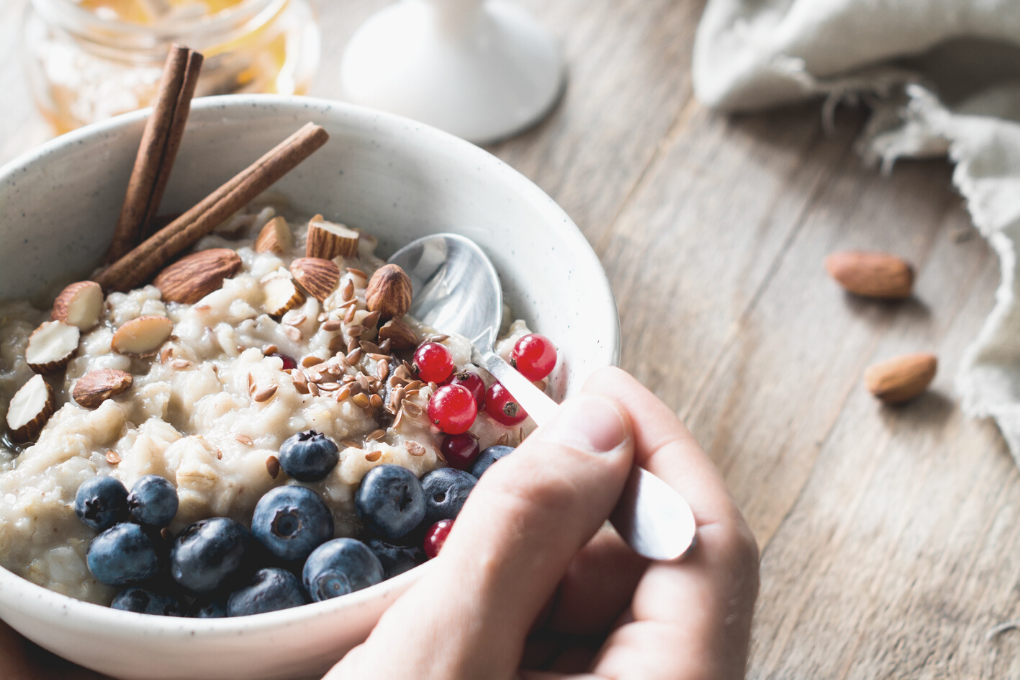
6. Slowly increase fibre consumption
Reaching the daily recommended intake of fibre (25-30g) is extremely important for gut health and to maintain regular bowel movements. It can aid in relieving both constipation and diarrhoea, however increasing your intake too much at once can potentially worsen symptoms. When increasing fibre intake, it is best to do so slowly over a couple of weeks and ensure you are drinking at least 2 litres of water daily.
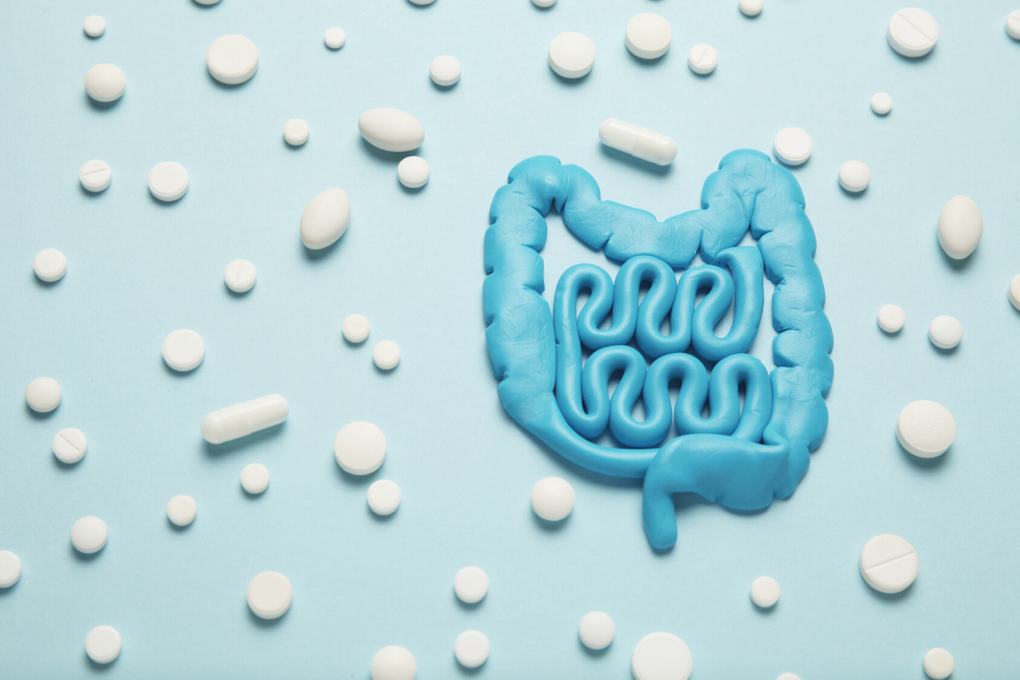
7. Supplementation
In some cases, supplementation with probiotics may be beneficial. The specific probiotics Lactobacillus plantarum 299v, Lactobacillus acidophilus NCFM, and Bifidobacterium lactis HN019 have the most research behind them to help with bloating, abdominal pain and other gastrointestinal symptoms. Come and see us in store and we can suggest a probiotic that is right for you.
It may be overwhelming to implement all of these at once, so start with choosing just 2 modifications initially. It takes about 60 days to create a new habit – so give yourself this time before seeking to implement more.
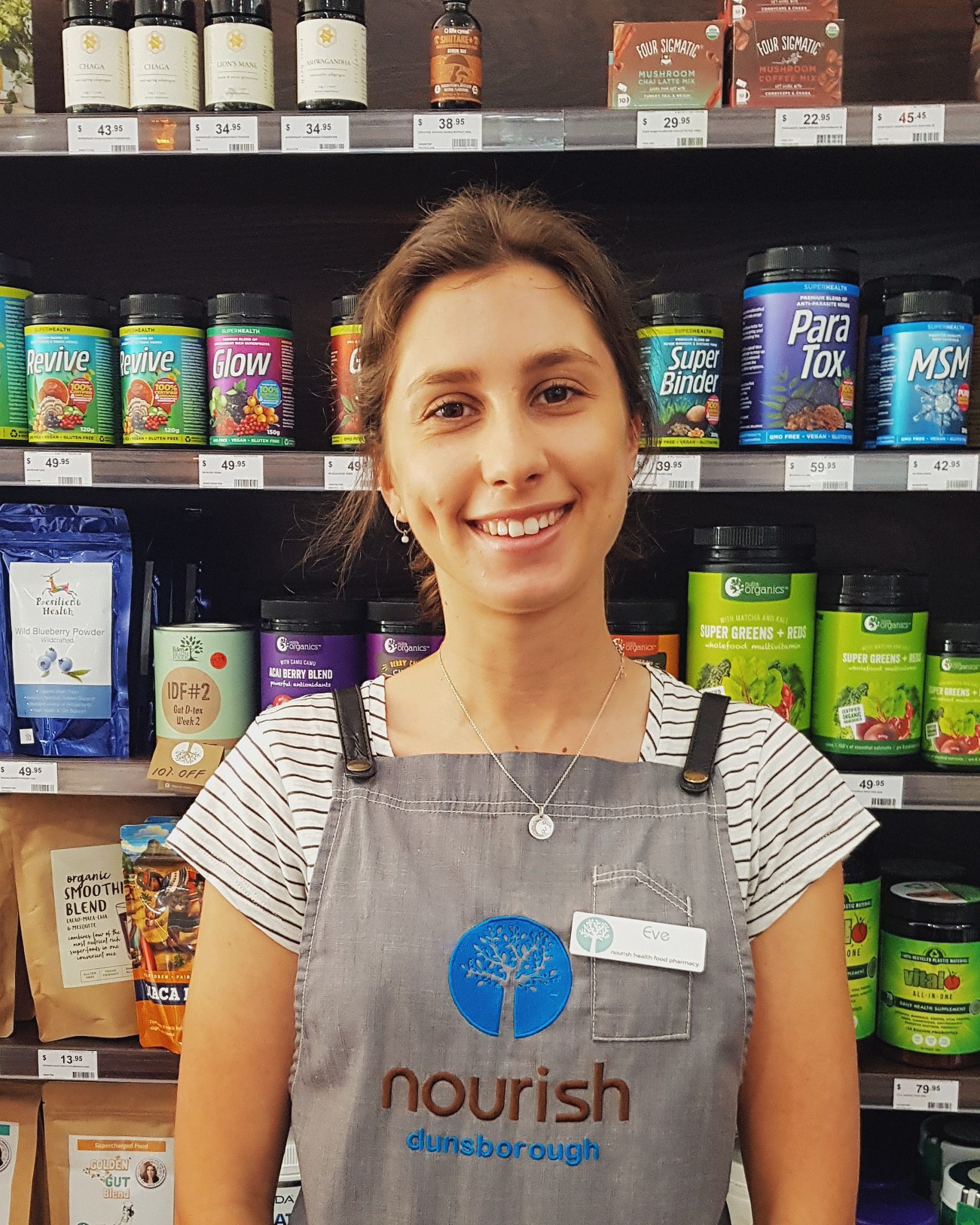
Eve Bishop
Nutritionist
This blog post was written by Eve Bishop, Nutritionist at Nourish Health



